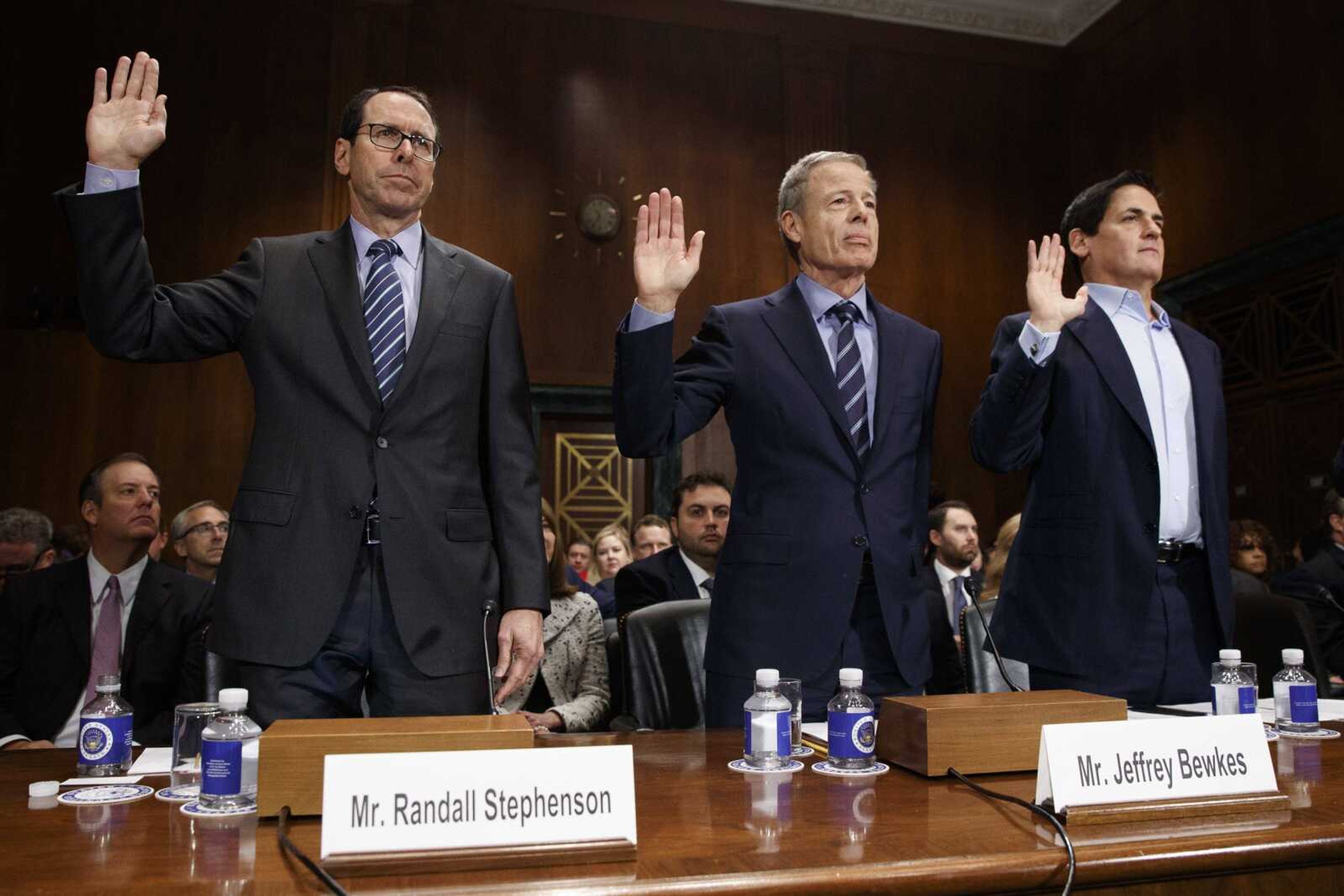WASHINGTON -- Senators questioning the logic of a proposed merger between AT&T and Time Warner turned their focus to the nickels and dimes of the issue, at least as to how the $85.4 billion mega-deal would affect Americans: Namely, will it reduce prices consumers pay?
AT&T CEO Randall Stephenson assured the members of a Senate antitrust panel Wednesday that yes, "we will bring the consumers better price options than what they have today."
He said, though, it wasn't possible at this point to separate how much of the anticipated savings would go to customers of the company's DirectTV, broadband and mobile phone services.
Stephenson and Time Warner CEO Jeffrey Bewkes made the case the combined company would push technology forward and lead to more choices for customers.
"Together, AT&T and Time Warner will disrupt the entrenched pay-TV models, giving customers more options, creating more competition for cable TV providers and accelerating deployment of 5G wireless broadband," Stephenson testified.
In hours of questioning before the Senate Judiciary antitrust subcommittee, the skepticism of some senators seemed to deepen over what would be one of the largest media mergers ever.
"I have yet to be convinced" the benefits of the merger outweigh the potential negative effects on competition, Sen. Richard Blumenthal, D-Conn., told Stephenson and Time Warner CEO Jeffrey Bewkes.
Panel chairman Sen. Michael Lee, R-Utah said, "The potential anticompetitive favoritism that the combined firm could bestow on its own products is not limited to price or access, but extends to the quality of the offerings as well."
The deal must win approval from federal regulators. It would bind the second-largest U.S. telecommunications company with a media and entertainment conglomerate that owns CNN, HBO, the "Harry Potter" franchise and pro basketball.
It's a big-time bet on a partnership between a company that distributes information and entertainment to consumers and one that produces it.
Critics of the merger range from industry analysts and public-interest groups to President-elect Donald Trump, who promised on the campaign trail he'd kill the deal "because it's too much concentration of power in the hands of too few."
Gene Kimmelman, a former Justice Department official who leads the consumer-advocate group Public Knowledge, crystallized those concerns.
"There are too few players in these markets already. They are heavily concentrated," he told the panel.
The concentration of market power could "harm the democratic process" and consumers' pocketbooks, Kimmelman warned.
Mark Cuban, the billionaire sports and media mogul who owns the NBA's Dallas Mavericks, played evangelist for the deal in a fast-moving world of media and entertainment content.
Consider Facebook's mergers with WhatsApp, Snapchat and others, he testified: Those deals are driving innovation. Old media such as Time Warner can't compete with the likes of Facebook if they can't merge.
What about Trump's avowed opposition?
Stephenson said he's confident the merger will be approved despite the president-elect's objection.
The Justice Department and possibly the Federal Communications Commission under the incoming Trump administration will put the proposed deal under scrutiny. Even assuming the merger is approved, some experts believe regulators might saddle the combined company with so many conditions, the deal no longer would make sense.
Connect with the Southeast Missourian Newsroom:
For corrections to this story or other insights for the editor, click here. To submit a letter to the editor, click here. To learn about the Southeast Missourian’s AI Policy, click here.







